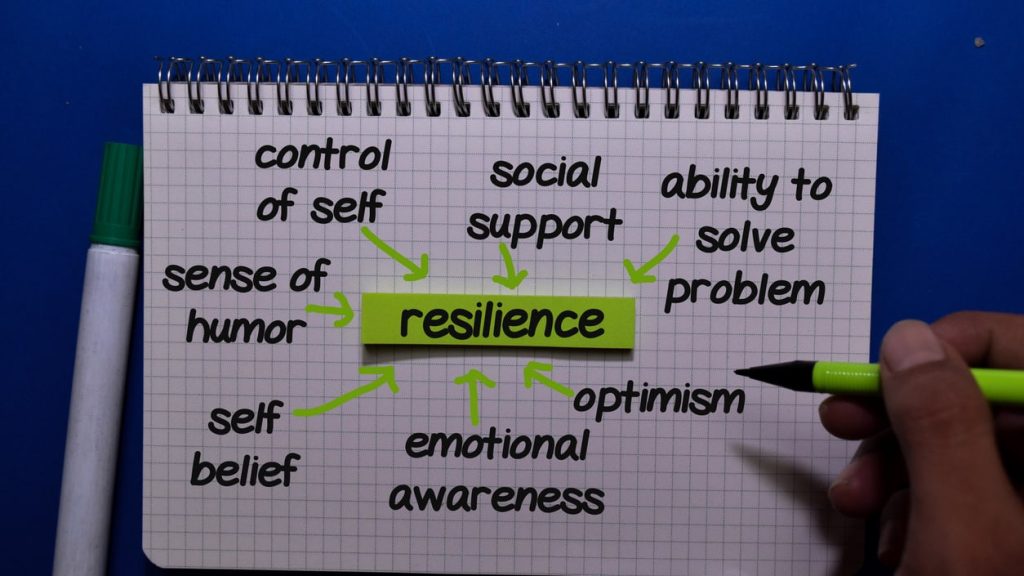Table of Contents
Life is filled with challenges, setbacks, and unexpected events that can test our mental and emotional fortitude. Resilience, the ability to bounce back from adversity, is a crucial skill that helps us navigate these difficulties and emerge stronger. While some people seem naturally resilient, resilience is a skill that can be developed and strengthened through intentional practice. Here, we explore effective strategies for building resilience and overcoming adversity.
Understanding Resilience
Resilience is not about avoiding stress or hardship but about facing them with strength and adaptability. Resilient individuals possess certain traits and habits that help them cope with challenges, including:
- Optimism: Viewing setbacks as temporary and surmountable.
- Emotional Regulation: Managing emotions in a healthy way.
- Self-Efficacy: Believing in one’s ability to influence outcomes.
- Support Systems: Relying on relationships for emotional support.
- Problem-Solving Skills: Approaching challenges with practical solutions.
Strategies for Building Resilience
Building resilience involves cultivating these traits and developing habits that support mental and emotional well-being. Here are some strategies to help you become more resilient:

1. Develop a Positive Mindset
A positive mindset is the foundation of resilience. It involves reframing negative thoughts and focusing on solutions rather than problems.
How to Develop a Positive Mindset:
- Practice Gratitude: Regularly reflect on things you’re grateful for. This can shift your focus from what’s going wrong to what’s going right.
- Challenge Negative Thoughts: When negative thoughts arise, question their validity and replace them with more positive, realistic ones.
- Visualize Success: Imagine yourself overcoming challenges and achieving your goals. Visualization can boost confidence and motivation.
2. Cultivate Emotional Awareness and Regulation
Emotional awareness involves recognizing and understanding your emotions. Emotional regulation is about managing these emotions constructively.
How to Cultivate Emotional Awareness and Regulation:
- Mindfulness Meditation: Practice mindfulness to stay present and observe your emotions without judgment.
- Deep Breathing Exercises: Use deep breathing techniques to calm your mind and body during stressful situations.
- Journaling: Write about your feelings and experiences to process emotions and gain insights.
3. Strengthen Your Support Network
Social support is a critical component of resilience. Building and maintaining strong relationships provides a buffer against stress and adversity.
How to Strengthen Your Support Network:
- Nurture Existing Relationships: Invest time and effort in maintaining connections with family and friends.
- Seek New Connections: Join groups or organizations that align with your interests to meet new people.
- Ask for Help: Don’t hesitate to reach out for support when needed. Sharing your struggles can provide relief and perspective.

4. Focus on Physical Health
Physical health and resilience are closely linked. A healthy body can better withstand stress and recover from setbacks.
How to Focus on Physical Health:
- Exercise Regularly: Engage in physical activities you enjoy to boost your mood and energy levels.
- Eat a Balanced Diet: Consume nutritious foods that support overall health and brain function.
- Prioritize Sleep: Ensure you get enough restful sleep to restore your body and mind.
5. Develop Problem-Solving Skills
Effective problem-solving skills help you navigate challenges more efficiently and confidently.
How to Develop Problem-Solving Skills:
- Break Problems Down: Divide complex problems into smaller, manageable parts.
- Brainstorm Solutions: Generate a list of potential solutions and evaluate their pros and cons.
- Take Action: Implement the best solution and adjust your approach as needed based on results.
6. Set Realistic Goals
Setting and achieving goals builds confidence and a sense of purpose, which are essential for resilience.
How to Set Realistic Goals:
- Use the SMART Framework: Set Specific, Measurable, Achievable, Relevant, and Time-bound goals.
- Create a Plan: Outline the steps needed to achieve your goals and track your progress.
- Celebrate Milestones: Acknowledge and celebrate your achievements, no matter how small.
7. Learn from Adversity
Adversity can be a powerful teacher. Reflecting on past challenges and learning from them enhances resilience.
How to Learn from Adversity:
- Reflect on Experiences: Consider what you learned from difficult situations and how you grew as a result.
- Identify Strengths: Recognize the strengths and skills you used to overcome past challenges.
- Apply Lessons Learned: Use insights from past experiences to tackle new challenges more effectively.
Conclusion

Building resilience is a lifelong process that requires intentional practice and self-awareness. By developing a positive mindset, cultivating emotional regulation, strengthening your support network, focusing on physical health, enhancing problem-solving skills, setting realistic goals, and learning from adversity, you can enhance your resilience and navigate life’s challenges with greater ease. Remember, resilience is not about avoiding difficulties but about facing them with courage and emerging stronger. With these strategies, you can build the resilience needed to thrive in the face of adversity.


